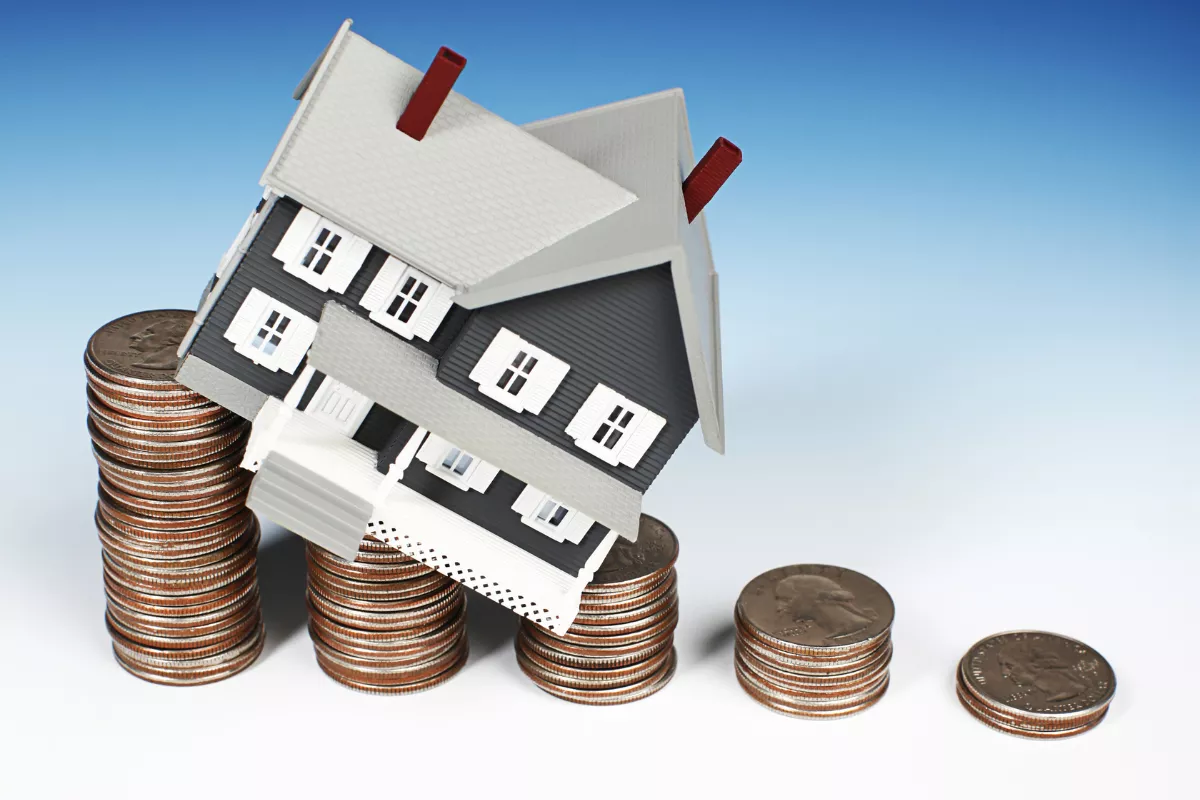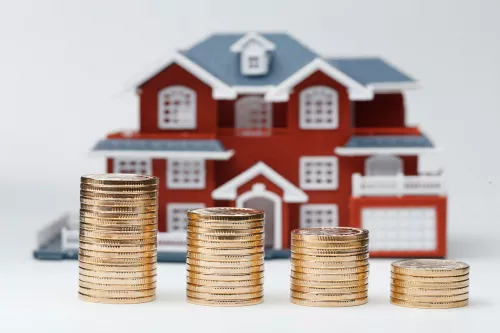Numerous individuals are curious about the current condition of the housing market, especially with the lingering worry of experiencing another downturn similar to the 2008 real estate crash, which had widespread effects.
Some experts believe that the present market conditions do not indicate a collapse akin to what was seen during the 2008 financial turmoil. Presently, there is a rising demand for housing coupled with limited supply, a situation that has persisted since the Global Financial Crisis.
Despite housing affordability hitting a 30-year low, the market has remained robust due to the strong demand in comparison to the limited inventory. Homeowners are choosing to hold onto their properties primarily because of elevated mortgage rates, which does not necessarily indicate a weakening market or an imminent bubble burst.
A plethora of online resources underscore the housing market's durability, with many pointing out that despite significant challenges, property values have largely remained stable over the last century. The mortgage sector has made a comeback, and the likelihood of a crash akin to the one experienced during the Great Recession has diminished owing to stricter lending standards.
Furthermore, the strong aspiration among Gen Z and millennials to become homeowners could provide a buffer against a potential market downturn.
Based on our calculations, the national Home Value Index is expected to rise by 4.9% from August 2023 to August 2024. While this marks a reduction from previous forecasts, it still signifies healthy growth.
Although still not reaching the heights seen before the pandemic, the recent uptick in new listings and inventory suggests a potential easing of market conditions. Nonetheless, it is predicted that the combination of limited supply and elevated mortgage rates will likely constrain the volume of sales.
Is a US Housing Crash Coming?
The US housing market in 2024 is like a roller coaster ride, with high interest rates and inflation making buying a house more expensive, and whispers of a recession making folks nervous. Despite that, lots of people, especially younger ones wanting their first homes, are still eager to buy, which keeps prices from plummeting.
The market's not like the shaky days before the big financial crash, thanks to stricter rules on who gets a loan. Even if times get tough and we hit a recession, it might not be as bad as before, with fewer people losing their homes. So, while buying a house might feel a bit tougher right now, the strong demand from younger buyers is like a safety net, helping to keep the market from crashing severely.
The Bubble Question
Speculation about a housing bubble is recurrent, characterized by rapidly increasing prices detached from fundamental economic indicators. While certain areas may experience bubble-like conditions, a nationwide collapse is less probable due to the market's diverse and localized nature.
A housing bubble forms when there's a big jump in house prices, driven by high demand, lots of buying, and speculation. This bubble grows until the supply of houses increases enough or demand drops off, causing prices to plummet suddenly, which is when the bubble "pops".
These bubbles are unusual events and can hang around for a while. They're often fueled by factors like speculative investments, a flood of money into the market, loose lending practices, or complex mortgage products, making house prices shoot up beyond sustainable levels.
When a housing bubble bursts, it doesn't just lead to a crash in the real estate market; it affects people from all walks of life, entire communities, and the broader economy. It can push homeowners to find ways to keep up with their mortgage payments, sometimes even dipping into retirement funds. Housing bubbles have historically led to significant financial losses for many people.
The Silver Lining: Buying During a Housing Market Crash
A downturn in the housing market isn't necessarily all doom and gloom for potential homebuyers. Lower prices and decreased competition can provide unique opportunities for those with secure financial standings to purchase properties at a discount. However, it's crucial to approach such investments with caution, considering long-term market trends and personal financial stability.
So, what should a prospective homeowner do? Rather than waiting for prices to drop, here are some strategies to help you secure a home in 2024:
Broaden Your Search Area
If your current location is too pricey, think about other areas. A chat with a real estate agent could reveal more affordable options just a few towns away. Prices can vary significantly between neighborhoods, so it's worth exploring.
Just remember to weigh other important factors, like your commute and school districts, before deciding to move. Escaping the hustle and bustle of a major city for the suburbs or even a smaller town next door could make owning a home much more achievable.
Hold Out for Lower Mortgage Rates
There's a silver lining for buyers: mortgage rates are expected to dip in 2024. They might not hit the rock-bottom rates of 2020 and 2021, but forecasts suggest they could settle in the 6% to 6.5% range for a 30-year fixed mortgage. A drop in rates can significantly lower your monthly mortgage payments, making homes more affordable.
Seek Out Financial Assistance
Lenders are getting creative with offers to attract buyers, especially first-timers. Many top lenders provide perks like down payment help or options to lower your interest rate. Dive into all the resources available, including special loans and grants for first-time buyers, as well as any state or local down payment assistance programs.
The Duration of Housing Market Crashes
While some crashes may see a relatively swift recovery, others can extend over several years, affecting not just home values but also consumer spending and investment behaviors. From the economic turbulence of the 1837 Panic to the devastating crash of 1929 that ushered in the Great Depression, and the more recent 2008 downturn, each period has its own story, marked by varying lengths of recovery and unique challenges.
These past crises have taught us that recoveries can be as quick as a few years or as prolonged as several decades, heavily influenced by factors like economic conditions, government interventions, and market dynamics.
Fast forward to today, and the landscape looks a bit different. While whispers of a potential crash might send shivers down our spines, the current market dynamics—such as the tug-of-war between supply and demand, stricter lending standards, and the demographic wave of new buyers—paint a more resilient picture.
Unlike the dramatic collapses of yesteryears, today's market is buoyed by a combination of healthy homeowner equity, cautious construction pacing by builders, and a demographic boom that's keeping demand robust.
So, while the ghost of market crashes past might loom large in our collective memory, the present scenario suggests we're navigating a market that's more stable and less prone to the dramatic busts that defined previous downturns. It's a reminder that while history offers valuable lessons, today's market is writing its own, more hopeful, story.
Implications for Homebuyers
A housing market crash often transforms the landscape into a buyer's market, where the abundance of properties surpasses buyer interest, granting purchasers greater bargaining power and access to a wider array of affordable homes.
However, this shift comes with its challenges, as obtaining a mortgage becomes harder with lenders imposing stricter requirements due to heightened market uncertainties. In such turbulent times, a rapid decline in home values can leave buyers with mortgages that exceed the worth of their homes, locking them into their investments until the market recovers or pushing them to incur losses on sales.
This predicament can escalate into a wave of foreclosures and bankruptcies, with homeowners unable to keep up with their financial commitments, profoundly affecting individuals and reverberating through the entire real estate sector.
Warning Signs to Watch
Potential red flags indicating a cooling or distressed housing market include a significant rise in inventory levels, declining home sales, increased foreclosure rates, and a widening gap between housing prices and income levels. When monitoring the housing market for potential signs of a crash, it's crucial to keep an eye on several key indicators that can signal trouble ahead. Here are some warning signs to watch:
Rapid Increase in Home Prices
An unsustainable surge in home prices that outpaces income growth can indicate a bubble that might burst, leading to a market crash.
High Mortgage Delinquency Rates
An uptick in the number of homeowners unable to make their mortgage payments on time can be a precursor to a housing market downturn.
Surge in Foreclosures
A significant increase in foreclosures can flood the market with properties, pushing prices down and signaling financial distress among homeowners.
Excessive Construction
Overbuilding can lead to a surplus of homes, causing prices to drop when supply outstrips demand.
Declining Home Sales
A consistent decrease in the number of homes being sold can indicate declining demand, which may lead to a market correction.
Rising Interest Rates
Higher interest rates can lead to increased mortgage costs, reducing affordability for buyers and potentially cooling off a hot market.
Changes in Economic Indicators
Deteriorating economic conditions, such as rising unemployment rates or declining GDP, can reduce buyer demand and impact the housing market negatively.
Investor Activity
A significant portion of purchases being made by investors rather than owner-occupiers can inflate prices temporarily and lead to instability.
Loosening of Lending Standards
If lenders significantly lower their borrowing criteria, it may lead to an increase in buyers who are less financially stable, increasing the risk of a market downturn.
Market Sentiment
A shift in consumer confidence, where more people believe the market will crash, can become a self-fulfilling prophecy as buyers and sellers adjust their actions accordingly.
People also ask
How can I protect my investment in a volatile market?
Focus on properties with long-term value, diversify your investment portfolio, and maintain a solid financial cushion to weather potential downturns.
Should I wait for a market crash to buy a home?
Timing the market is notoriously challenging. Base your decision on personal financial readiness and long-term housing needs rather than speculative market timing.
How can first-time homebuyers navigate a challenging market?
First-time buyers should prioritize financial education, seek pre-approval for mortgages, and consider various housing options and locations to find the best fit for their budget and lifestyle.
Is 2024 the ideal year to purchase a home?
The suitability of 2024 for home buying hinges on a variety of elements such as economic patterns, interest rates, and the state of local markets.
Attempting to pinpoint the perfect market timing can often lead to disappointment. The optimal period for purchasing a property is highly personal and leans more towards one's financial stability, life objectives, and readiness to establish a long-term residence.
In preparation, start exploring potential neighborhoods that align with your lifestyle and budget, keep an eye on fluctuating mortgage rates, and accumulate savings for a down payment.

 Marcio Vasconcelos
Marcio Vasconcelos





